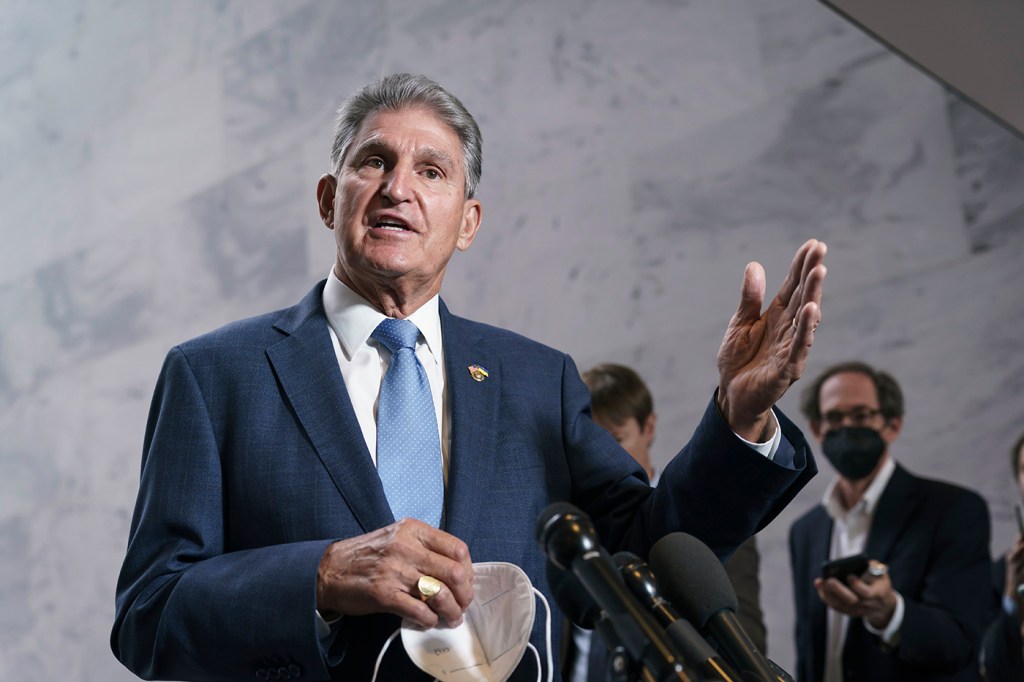What’s in ‘the biggest piece of climate legislation’ in US history?

Potentially transformational climate change legislation was given new life last week after Senate Democrats came to an agreement with Sen. Joe Manchin (D-WV).
The agreement aims to tackle climate change, taxes, health care and inflation as part of the Inflation Reduction Act, with $369.75 billion set aside for energy security and climate change programs over the next 10 years. Senate Democrats claim the legislation would reduce carbon emissions by 40% by 2030, allowing the U.S. to hit the Biden administration’s climate goals.
Although the legislation is preliminary and the result of political maneuvering, Laura Kuhl, assistant professor of public policy and urban affairs at Northeastern, says it is “absolutely the biggest piece of climate legislation that’s ever been considered in U.S. policy.”

“This is so huge because this is kind of the last chance to adopt significant climate policy, and that’s obviously really critical for U.S. policy but also so important … for international climate policy,” Kuhl says. “If the U.S. doesn’t pass climate legislation soon, it loses all credibility and negotiating power in international arenas.”
Among the policies in the legislation are clean energy tax credits and methane fees for large corporations; electric vehicle incentives; $60 billion in environmental justice and equity initiatives; and investments in domestic clean energy manufacturing. According to Kuhl, taken together, the policy package could put the U.S. on track to hit its 40% emission reduction goal.
The emphasis placed on environmental justice and equity would be a particularly big win, if implemented well, Kuhl says.
“One of the big challenges is how do you ensure those programs actually target the most vulnerable populations?” Kuhl says. “One of the challenges with that is that a lot of the decision-making is left to the states and some states are much better at ensuring that these resources actually get to the most marginalized populations than others.”
Generally, the legislation takes an incentive and market-driven approach to climate policy instead of a regulatory one. In the case of electric vehicles, tax incentives like the $7,500 rebate for new electric vehicles in the proposed legislation have proven effective when paired with other policies. The “dirty vehicle” buy-back program included in the package could jolt a lot of drivers into going electric, Kuhl postulates.
“Once you combine that with the incentives for electric vehicles, I could see synergies that are pretty powerful there,” Kuhl says.
With the policy package, Democrats also hope to incentivize corporations–100 of which are responsible for 71% of global emissions–into cleaning up their act. Proposed tax credits would incentivize companies to deploy renewable technologies and renewable energy. A methane fee for high-emission oil and gas companies is also key to helping drive down emissions.
“The thing about methane is it’s a really good area to be targeting for policy because the greenhouse gas intensity of methane is so much more than carbon dioxide,” Kuhl says. “So, any place where you’re able to reduce methane emissions you’re going to have a bigger impact on global warming potentially.”
While the legislation would not make the U.S. a leader in climate policy, “what it does is say, ‘We’re still in the game,’” Kuhl says. Just by playing the game, the U.S. can have a significant impact domestically and globally, she says.
“Investments in R&D and driving down the costs of renewables will have spillover effects globally in driving down costs as a whole, and that could have huge implications, particularly for developing countries that are looking to adopt these technologies.”
Despite the legislation’s potential, Kuhl says a healthy level of skepticism is warranted, given Manchin’s involvement. As the only Democrat opposed to the bill in a split-down-the-middle Senate, Manchin’s opposition to massive spending during a period of intense inflation has been a major roadblock for Democrats. He also counts oil and gas companies among his donors, which Kuhl fears shaped some of the legislative package.
“There’s a lot of carefully worded language that opens up the door for a lot more fossil fuel investment than one would ideally like to see in a climate policy,” Kuhl says.
However, at the end of the day, Kuhl says the legislation would be a gamechanger for U.S. climate policy at a time when progress on climate change is stalling.
“This is really a tension between an incremental kind of approach to climate policy and a fairly transformational approach,” Kuhl says. “It’s not a pure idealistic climate policy, but we’re not in a place where that’s what’s on the table.”
For media inquiries, please contact media@northeastern.edu.






